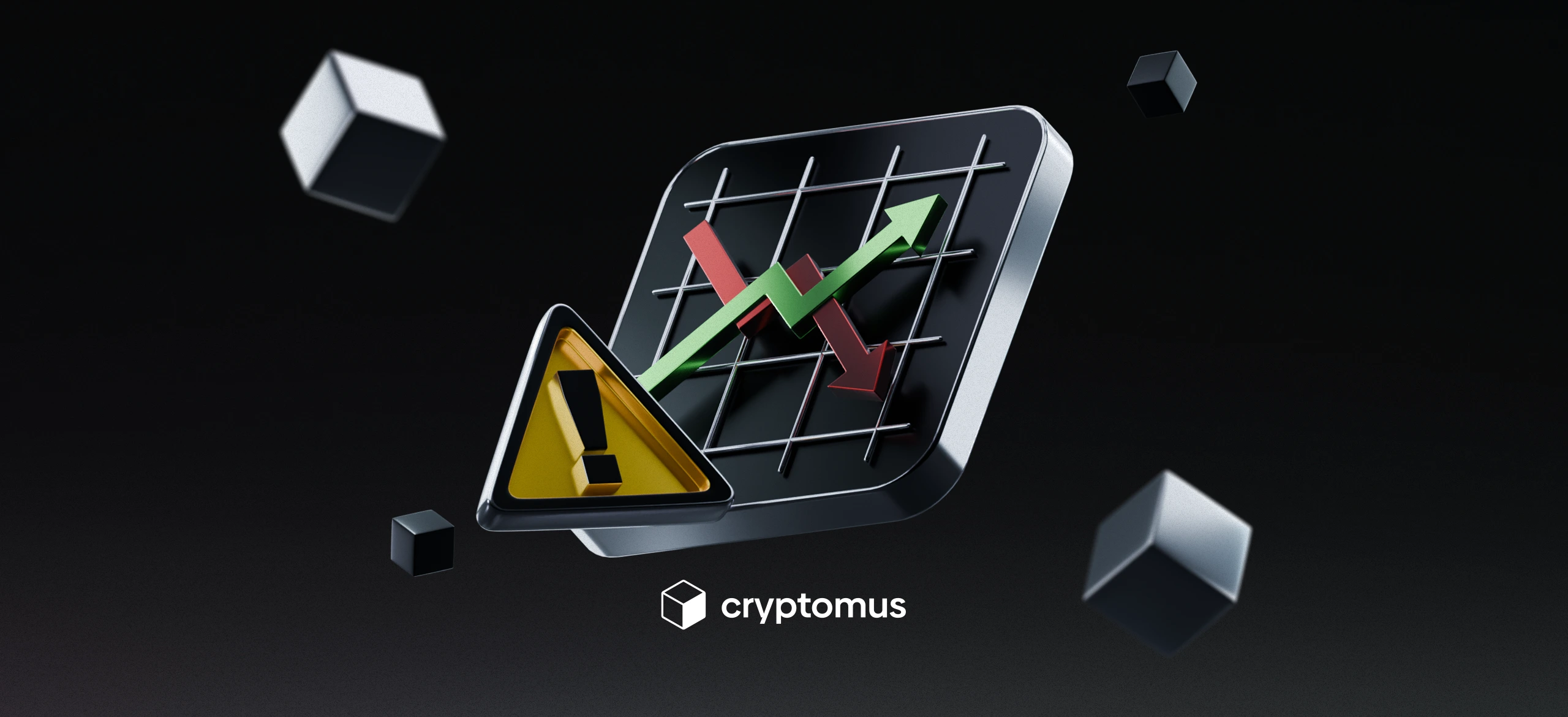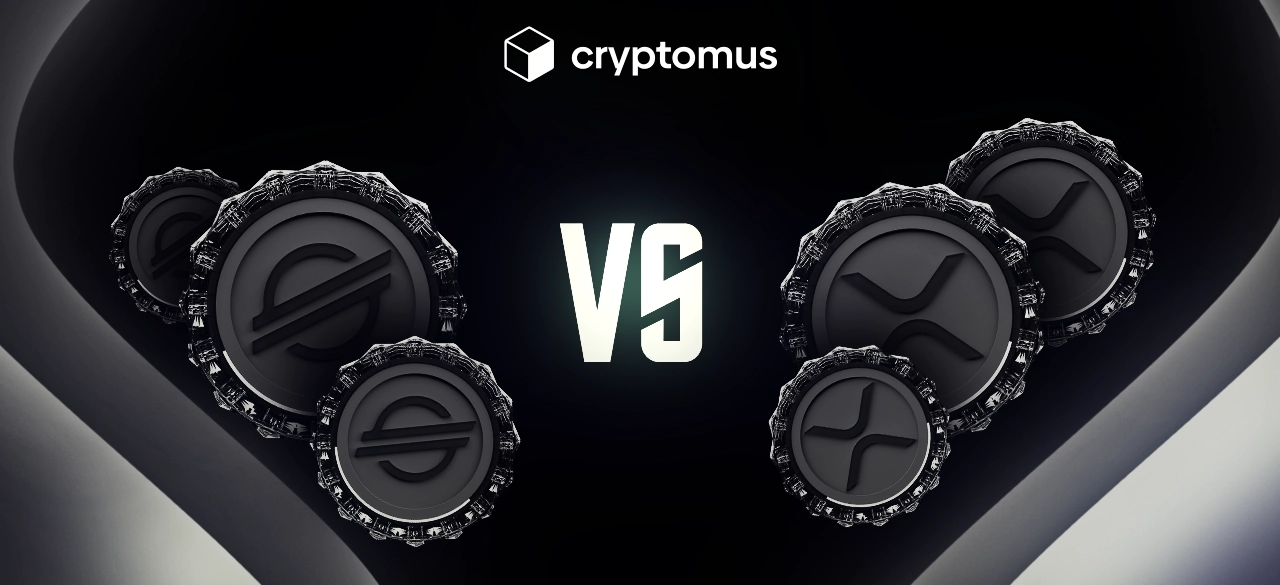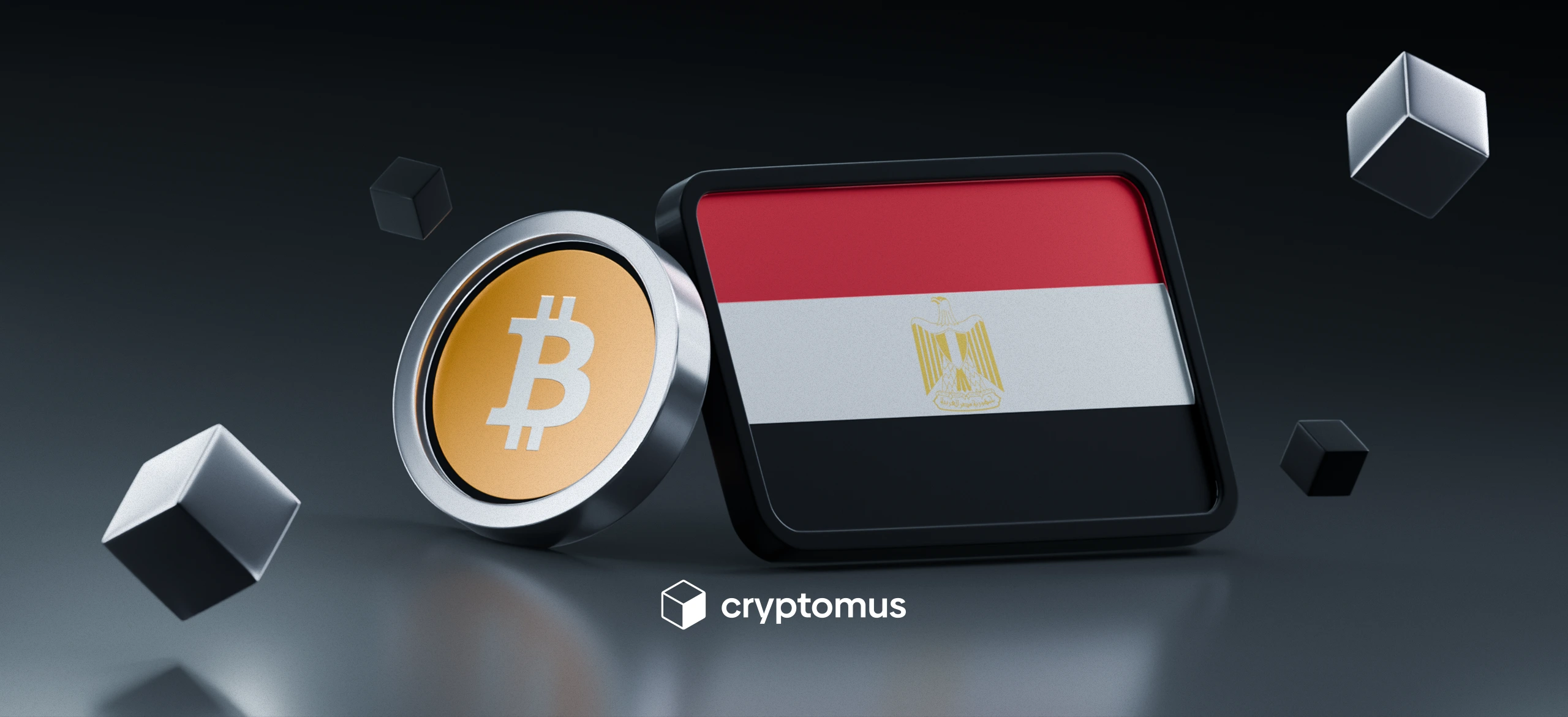
How to Buy Crypto in Egypt
Table of Contents
Cryptospace is considered a young and still developing sector. That's why in many jurisdictions the legal clarity for digital finance remains shady and complicated. Today, we'll research every important thing about crypto in Egypt and answer the most popular questions. Let's begin!
Is It Legal to Buy Crypto in Egypt?
Cryptocurrency regulation remains a legal grey area in Egypt. While buying crypto is not illegal, it also isn't officially considered fully legal. The Central Bank of Egypt (CBE) spoke out against crypto back in 2018, but by 2019 they declared that only unlicensed trading will be restricted. A year later, CBE issued Law No. 194 of 2020, which compels to have a confirmed license to possess, promote, or operate crypto. In practice, many Egyptians still use international exchanges like Bitget, Binance, or Rain, but legally, trading is only fully allowed when done through a licensed platform. As for religion, Dar al-Ifta once declared Bitcoin haram, but more recent views say it could be halal if properly regulated and safe for the economy.
Ways to Buy Crypto in Egypt
Considering those restrictions, there are multiple ways for users to buy crypto in Egypt. Each of them comes with its own advantages and drawbacks, depending on your personal preferences. Here are the main options available.
Centralized Exchanges (CEXs)
CEXs are company-operated online platforms where users can buy, sell, and trade crypto. They act as middlemen, offering fast transactions and strong liquidity.
Examples: Cryptomus, Bitget, Binance.
-
Pros: secure, user-friendly, multiple payment methods, high liquidity.
-
Cons: require ID verification (KYC), fees.
Peer-to-Peer (P2P) Platforms
P2P platforms connect buyers and sellers directly, without intermediaries. They basically find users with similar demand on both sides and let them trade on their own terms.
Examples: Cryptomus P2P, Bitget P2P, Binance P2P.
-
Pros: local payment options (bank transfer, Vodafone Cash, Fawry, etc.), lower fees, favorable exchange rate.
-
Cons: risk of scams, takes time to find a suitable offer.
Brokers & Trading Apps
Brokers and trading apps let you trade crypto through regulated platforms, usually with CFDs (Contract For Difference) instead of owning coins. They’re best for users who want trading tools and speculation options.
Examples: eToro, AvaTrade, IQ Option.
-
Pros: regulated providers, advanced tools, social/copy trading features.
-
Cons: higher spreads or fees, high minimum deposits, some only offer price speculation (CFDs, not actual crypto).
Third-Party Payment Gateways & Exchangers
Gateways and exchangers let you quickly buy crypto with cards, e-wallets, or local payment methods, making entry easier.
Examples: Mercuryo, Khazna, Paymob Egypt.
-
Pros: instant card purchases, support for Egyptian pounds.
-
Cons: higher fees (2–6%), usually KYC required, limited selling options.
Crypto ATMs
These ATMs look and work just like regular ones, but instead of exchanging card money for cash, they exchange crypto for fiat.
-
Pros: fast and simple for small transactions, support both buy and sell functions.
-
Cons: very limited availability in Egypt, high fees compared to online exchanges, may require phone verification or ID at higher amounts.
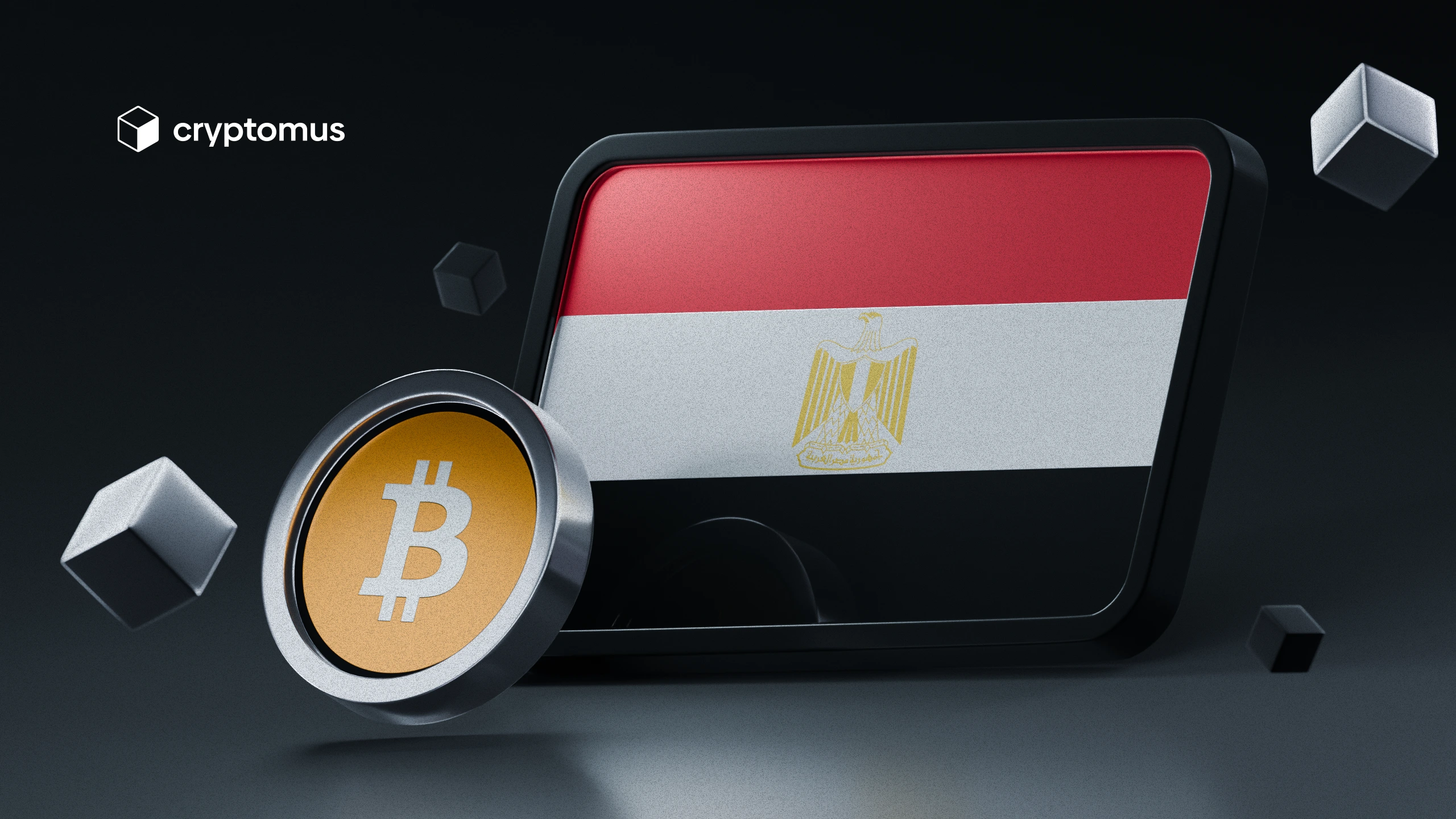
Step-By-Step Guide On Buying Crypto In Egypt
To buy crypto in Egypt, you'll need to:
-
Choose a reliable method that suits your needs (platform, cash, ATM, etc.).
-
Verify trust and security before sending money.
-
Prepare your payment method (bank card, transfer, e-wallet, or cash).
-
Complete the transaction and make sure you actually receive the crypto.
-
Store and record your assets safely for future use.
And now let’s look at each method in more detail.
Centralized Exchanges (CEXs)
Choose a centralized exchange that answers your demands and follow the next steps:
-
Sign up and pass KYC.
-
Deposit with card or bank transfer.
-
Go to the buying page.
-
Choose the crypto you’d like to buy and purchase it as instructions say.
Peer-to-Peer (P2P) Platforms
Choose a reliable P2P marketplace, sign up, go through KYC and follow the next steps:
-
Pick a trusted seller with a high rating.
-
Agree on payment (bank, wallet, cash).
-
Send funds to the seller's card/account.
-
Make sure you received the full amount of crypto and then withdraw it if needed.
Brokers & Trading Apps
To get crypto via brokers and trading apps, follow these steps:
-
Choose a licensed broker or a well-reviewed crypto trading app.
-
Register and complete KYC verification.
-
Fund your account with card, bank transfer, or sometimes local payment methods.
-
Select the crypto you want, input the amount, and confirm the purchase.
-
Your crypto will be held in the app’s internal wallet, or you can withdraw it to your own wallet.
Third-Party Payment Gateways & Exchangers
To buy crypto this way, you’ll need to:
-
Visit a trusted website or office.
-
Enter the amount and your wallet address.
-
Pay by transfer or cash deposit.
-
Get crypto directly to your wallet.
Crypto ATMs
To use this method:
-
Find a machine nearby.
-
Select the coin and amount.
-
Insert cash or card.
-
Scan your wallet QR to receive crypto.
Simple Way to Buy Crypto with Your Credit Card
Now let’s dive into the process of buying crypto with your credit card. We’ll take Cryptomus as an example.
Step 1: Sign up for a Cryptomus account to get your personal cryptocurrency wallet. Don’t forget to protect your wallet by enabling 2FA and setting a PIN.
Step 2: To buy cryptocurrency on Cryptomus, you need to pass the KYC procedure. You may do it through your personal account settings.
Step 3: Return to the dashboard and click “Receive”. Fill in all your criteria: select the desired cryptocurrency to buy and a suitable network. Then choose “Fiat” as a type of receive option when you’re buying any crypto with a debit or credit card.
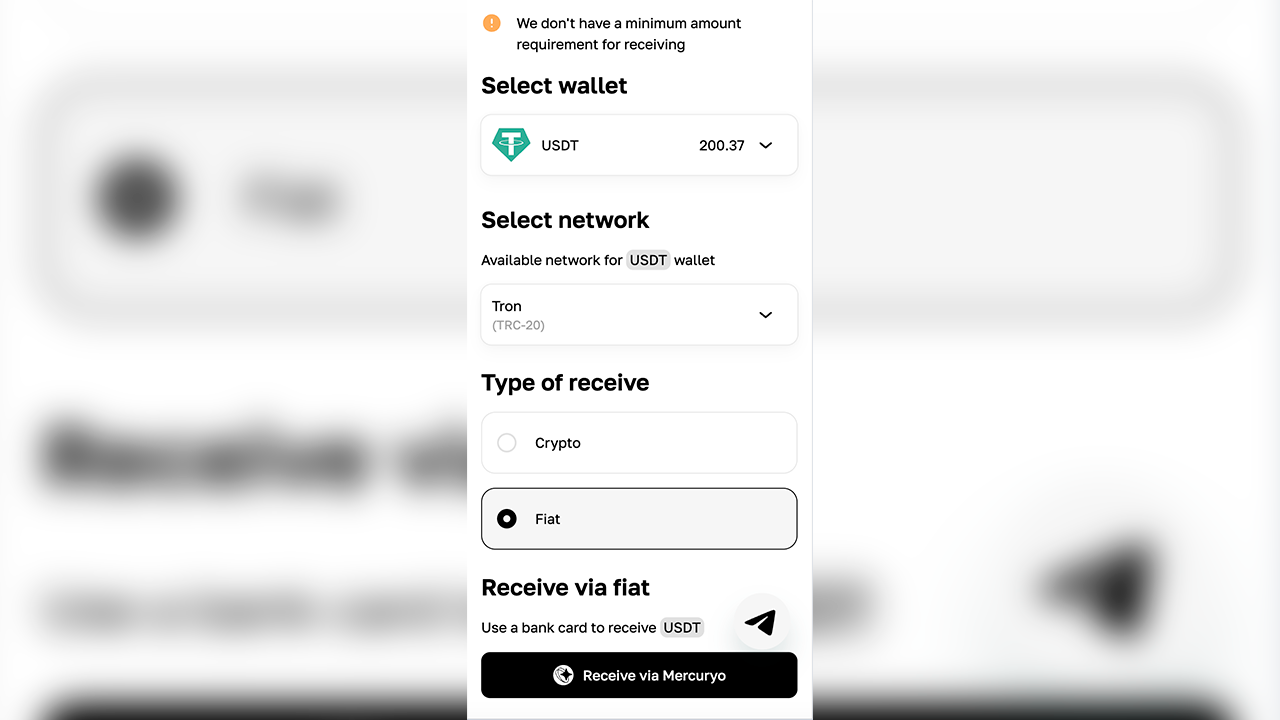
Step 4: Click on “Receive via Mercuryo” and fill in the gap with the amount you’re going to pay in the preferred currency. The receiving amount of crypto will be automatically calculated in the payment form.
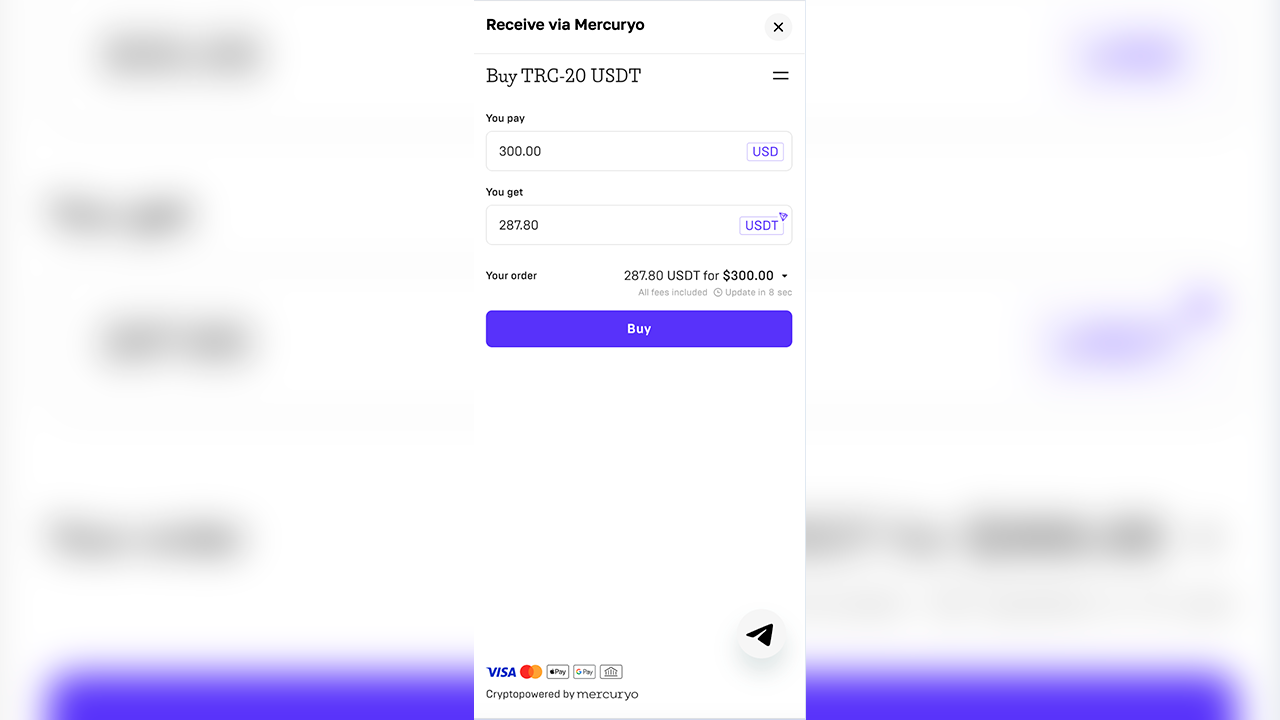
Step 5: Next, fill in your email address for getting a verification code, and enter your debit or credit card details to make a purchase.
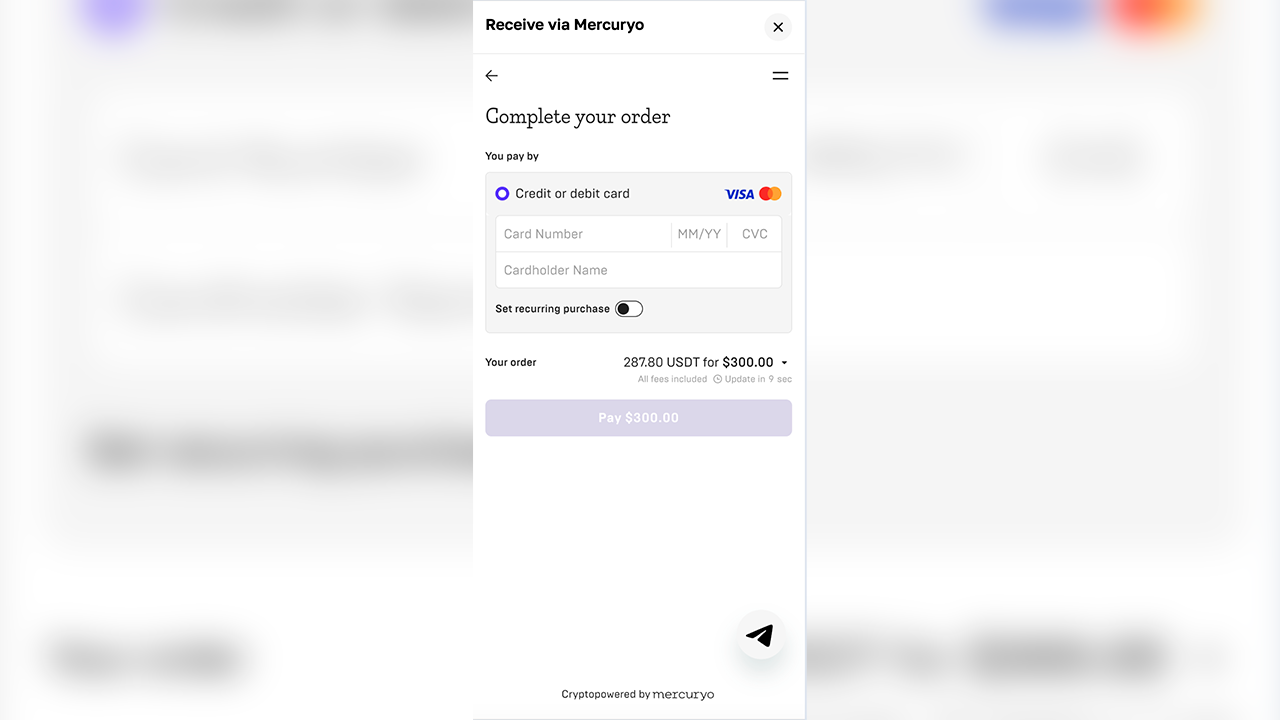
Well done! You’ve just bought cryptocurrency with a card without any complications. The funds will be credited to your personal wallet soon!
Do You Have to Pay Taxes on Cryptocurrency Investments?
Egypt currently does not impose any taxes on cryptocurrency investments. Since Law No. 194 of 2020 bans the issuance, trading, promotion, or operation of crypto without Central Bank approval, crypto activities fall outside lawful financial and tax systems. As such, the Egyptian Tax Authority (ETA) has no tax rules in place for digital currencies, including capital gains tax, income tax, or VAT.
Also, crypto is not recognized as personal property or income. So, there are no tax requirements for crypto gains—or losses—in Egypt. However, stay tuned and check the news: everything may change any moment.
Did you find this article useful? Did we answer all of your questions? Let us know in the comments below!
Simplify Your Crypto Journey
Want to store, send, accept, stake, or trade cryptocurrencies? With Cryptomus it's all possible — sign up and manage your cryptocurrency funds with our handy tools.
Get Started







